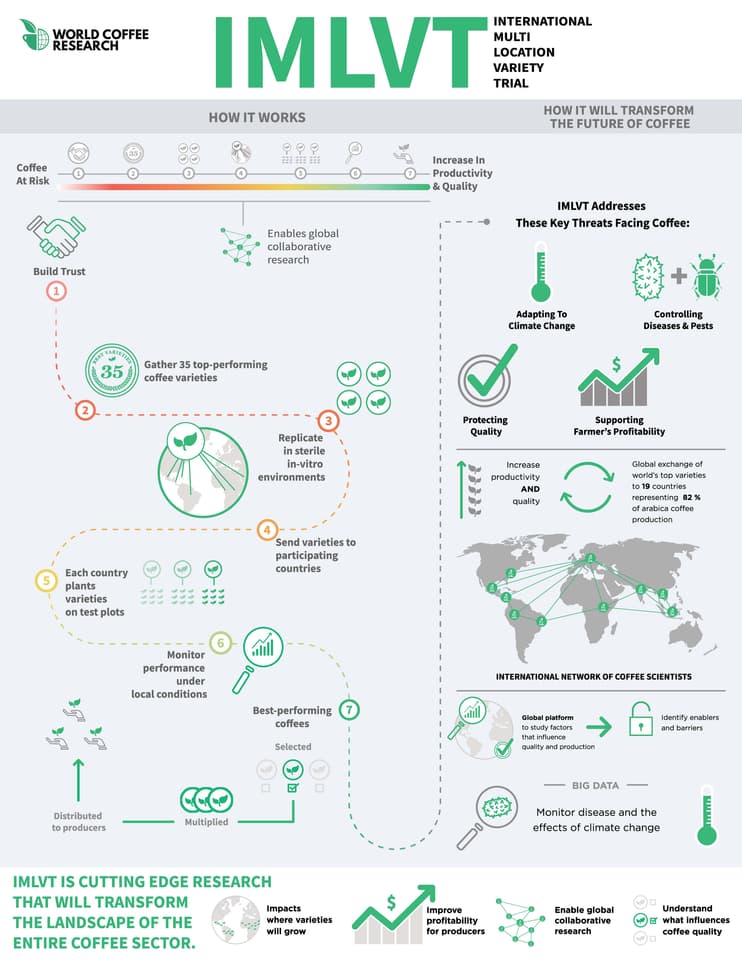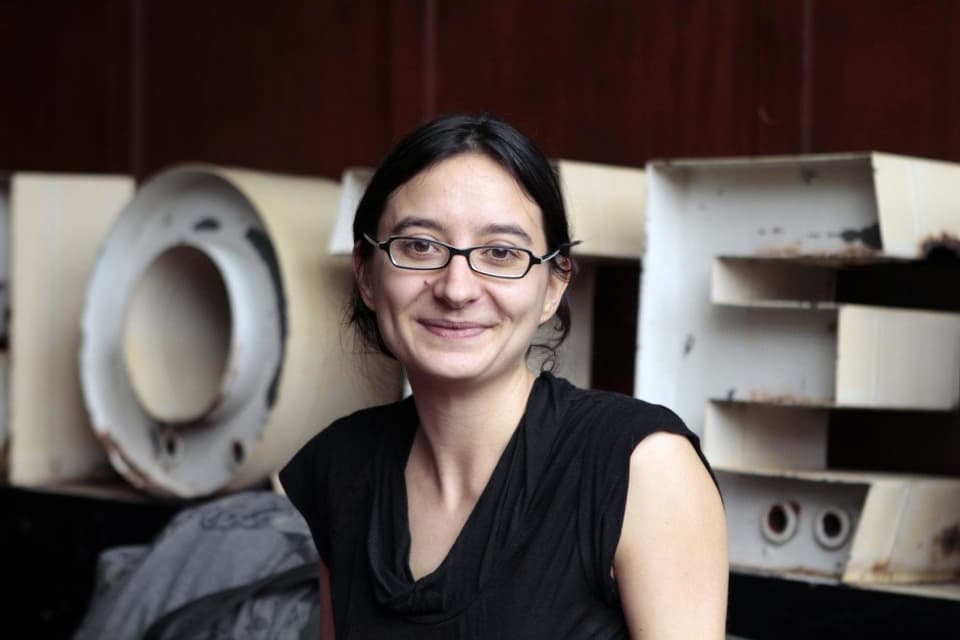WCR wins 2016 SCAA Sustainability Award
Recognizing the International Multilocation Variety Trial
And the Sustainability Award goes to...World Coffee Research for their project: International Multilocation Variety Trial
The SCAA's Sustainability Award celebrates innovative projects to expand and promote sustainability within the coffee world. In addition to recognizing the hard work of the individuals, businesses and organizations who created and implemented the project, the award aims to inspire others to initiate similar endeavors. SCAA's Sustainability Council created the Sustainability Award in 2003 to promote, encourage and honor the efforts of those serving as role models in fields of sustainability. In 2016, the award was given to World Coffee Research for it's International Multilocation Variety Trial.

An infographic explains how the trial works, and what its impact will be.
Coffee farmers typically have few choices about which coffee varieties are available for them to plant. Their choices are often limited by forces beyond their control— low levels of national investment in coffee research, the lack of a professional coffee seed sector, and a tradition among countries of not sharing genetic material. These constraints mean producers often rely on planting material that is susceptible to disease or does not perform optimally in their environment and of which the agronomic traits are not known or available. Until now no comprehensive effort had been made to gather improved coffee varieties from around the globe and make them available to producers in different countries.
The International Multilocation Variety Trial is a first-of-its kind undertaking to facilitate the global exchange of the world’s highest quality coffee varieties and evaluate their performance. The key benefits of the project are: (1) Coffee farmers around the world will benefit from genetic progress through access to new varieties with better productivity, disease resistance and/or beverage quality; (2) Researchers will identify key traits that have allowed different varieties to adapt to different environmental conditions, which will lay the groundwork for major advances in coffee breeding, climate adaptation strategies, and future research; (3) The trial will serve as a platform to monitor coffee disease epidemics; (4) The trial will strengthen local coffee institutions and organizations within participating countries, while transferring knowledge and technology to farmers.
In 2012, World Coffee Research (WCR) built the necessary foundation of trust for countries to be part of this ambitious project. In all, 19 countries are part of the project and more are expected. Eleven countries, one regional network (Promecafé) and one private alliance (Ecom-Cirad) are providing 35 top varieties. Where possible, WCR prioritizes partnering with the national coffee institutes to build capacity and strengthen those institutions.
All participating countries hosting trial sites have agreed to install, maintain, and monitor the plots (on average 1-3 per country). On each plot, a comprehensive list of variables is measured using standardized protocols developed by WCR—including plant vigor, productivity, coffee leaf rust and other disease and pest incidence, bean characteristics, bean chemistry, and cup quality.
The best-adapted varieties can then be made available to producers to increase supplies of quality coffee for those countries. If, for example, Kenya found that a Honduran variety performed exceptionally well in trial sites, it may find an agreement with Honduras to eventually commercialize the variety in Kenya. While there are isolated examples of this kind of exchange taking place historically, there has never been a global framework for it.
The trial follows a careful protocol to ensure that plant material being moved around the globe is disease-free. Beginning in 2014, seeds of the 35 varieties were shipped from donor countries to a in vitro tissue culture lab in Florida, so that disease-free in vitro plantlets could be safely sent to participating countries. By the end of 2015, over 50,000 plants had been shipped to 16 of the 19 participating countries and 6 countries had established the first field plots.
Additional information about this year's other award recipients is available here: http://www.scaa.org/chronicle/2015/12/07/nominations-being-accepted-for-2016-annual-recognition-awards-sustainability-award/
And the Distinguished Newcomer Award goes to...Hanna Neuschwander
World Coffee Research was doubly honored that the SCAA's Distinguished Newcomer Award was given this year to Communications Director Hanna Neuschwander. The award recognizes a coffee professional of 5 or less years whose significant contributions have made a positive impact, change of course, significant insight, or added value within the coffee industry. Neuschwander has been communicating about coffee and science since 2004. Prior to joining World Coffee Research she was a communications director at Lewis & Clark College, where she helped professors share their academic work with a wider audience, and a freelance writer focused on the intersection of coffee and culture. She is the author of Left Coast Roast, a guidebook to artisan and influential coffee roasters on the west coast. She has quickly distinguished herself in her ability to communicate with clarity and urgency the threats facing coffee, and to bring WCR's work to a wider coffee audience.
